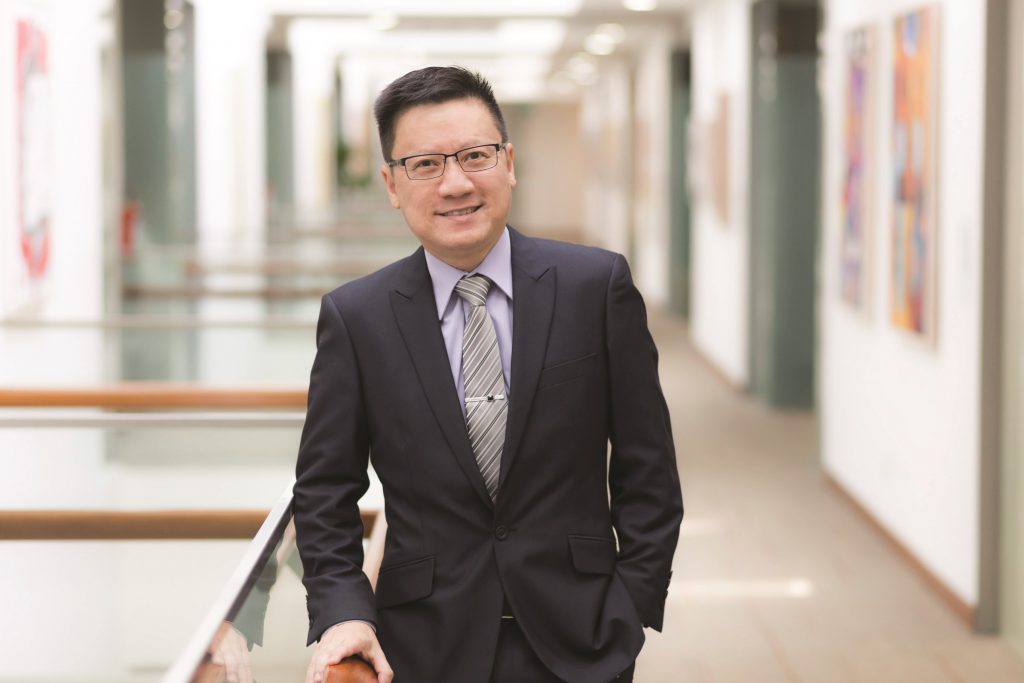Back Page: From Police Officer to Professor

A 9-year stint on the Singapore Police Force has shaped David Chan’s sensitivity to contextual factors in his psychological research on perspective-taking. Chan is Director of the Behavioural Sciences Institute and Professor of Psychology at the Singapore Management Institute.
What specific values or knowledge did you take away from joining the Singapore Police Force more than 3 decades ago that you still use today as a professor, researcher, and scientist?
My time as a police officer, which spanned 9 years prior to entering academia, put me in diverse practical situations as they occur in people’s lives, involving people from all backgrounds in Singapore. Through these experiences, I learned the importance of fairness and trust perceptions, empathy, adaptability, and situational-judgment ability, all of which are distinct from formal authority, academic abilities, and technical expertise.
I came to appreciate how important it is to be sensitive to contextual factors and see things from another’s perspective, to handle practical situations in a principled and pragmatic way, and to respect people’s dignity. I also learned that one can use different types of power effectively and use opportunities efficaciously to make a positive difference in people’s lives.
All of these experiences significantly affected my judgment and decision-making in terms of what issues to focus on and how to approach them. It could be choosing a research topic, mentoring a student or junior faculty, working with experts from diverse disciplines and different cultures, advising the government or an organization on a policy or program, consulting for a television documentary series, writing an op-ed for a newspaper, or volunteering for a cause.
One of your current lines of research focuses on perspective-taking. Why has that received much attention from policymakers and the public?
Studies have shown that we don’t see things as they are; we see things as we are. We make interpretations according to our beliefs and past experiences, and also in the context of the circumstances we find ourselves in.
We need to recognize that some of the differences in viewpoints across individuals or groups, or between citizens and policy makers, are probably due, in part, to differences in life experiences. We cannot live someone else’s life experiences. But if we all take time to put ourselves in someone else’s shoes before we advocate a position or react to differing views, it is more likely that we can move forward constructively, even if disagreements still occur.
So I think the attention that my work received is quite natural, in the sense that disagreements are not uncommon and are often unpleasant. Perspective-taking offers an adaptive approach to solving problems and making decisions in the real world.
Are there specific strategies we can use to activate perspective-taking when talking to someone who is different from us?
There are evidence-based approaches to enhance our perspective-taking abilities and tendencies in an adaptive way — for example, guarding against our confirmatory biases by learning to be inclusive and to honestly consider other perspectives very different from our own.
But don’t just imagine possible perspectives in an armchair. Get into the action and interact with others to find out their concerns and circumstances. When these interactions are naturalistic as opposed to contrived, people are more likely to tell each other what they truly think instead of what they think the other wants to hear.
Over time, quality interactions build mutual trust, reciprocity norms, social cohesion, and possibly even shared values on some core issues. All these will motivate people to see things from each other’s perspective and facilitate conflict resolution and collaboration.
Based on your experiences as a scientist, professor, consultant, and public intellectual, what are some lessons you think would benefit students and early-career researchers?
Psychological science has so much to contribute to solving
real-world problems and improving people’s lives. When we learn how to address apparent contradictions and when to move away from a zero-sum, trade-off mindset, we will see many commonalities and complementarities in goals between science and practice.
Two points are worth reiterating — they are often preached but seldom practiced. First, our research can solve real problems and improve people’s lives when they are based on scientific rigor and practical relevance. Rigor and relevance are not merely abstract values that we profess; they are operating principles to guide actual decisions in the research process and in the communication and application of the findings.
Second, the translation from scientific knowledge to practical applications is critical. As psychologists, we will have much greater impact if we develop the skills to effectively integrate science and practice.





APS regularly opens certain online articles for discussion on our website. Effective February 2021, you must be a logged-in APS member to post comments. By posting a comment, you agree to our Community Guidelines and the display of your profile information, including your name and affiliation. Any opinions, findings, conclusions, or recommendations present in article comments are those of the writers and do not necessarily reflect the views of APS or the article’s author. For more information, please see our Community Guidelines.
Please login with your APS account to comment.